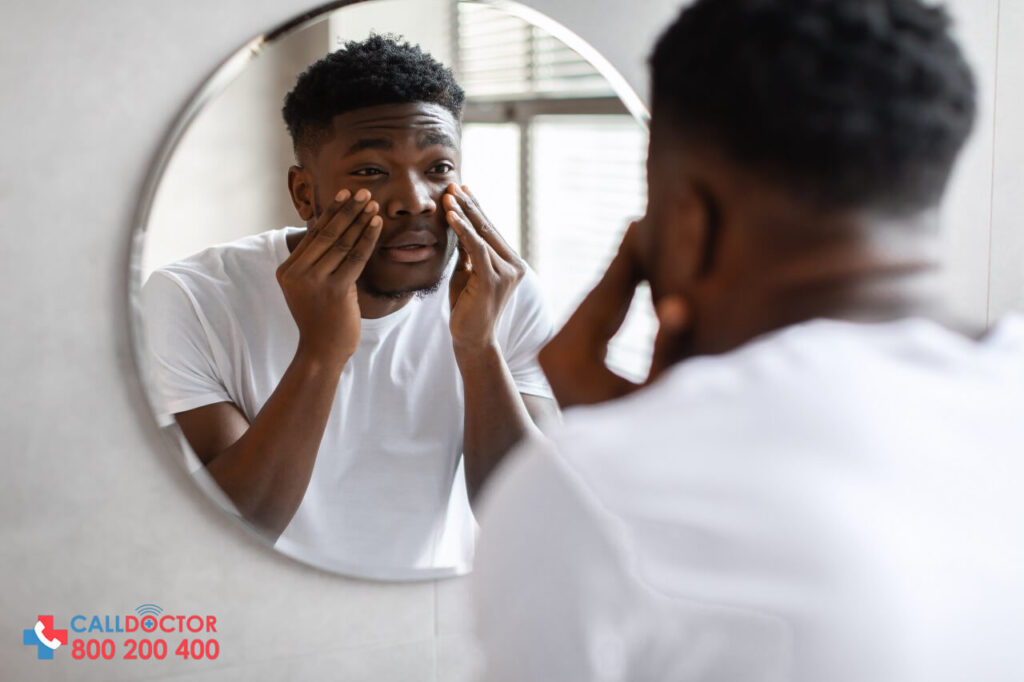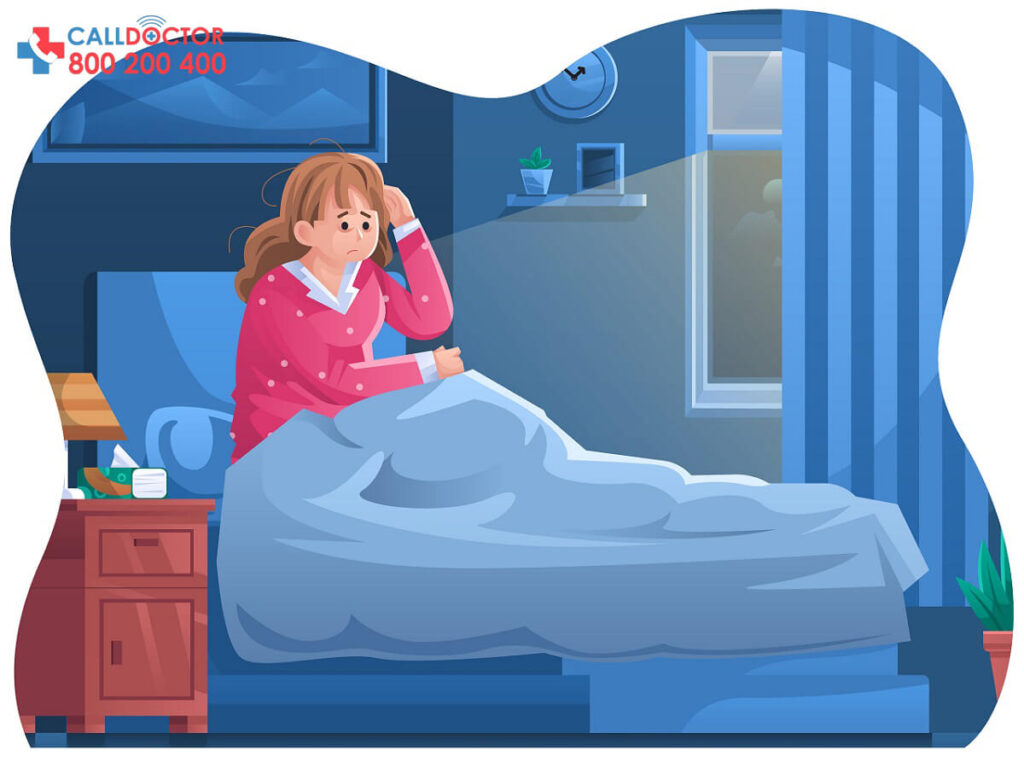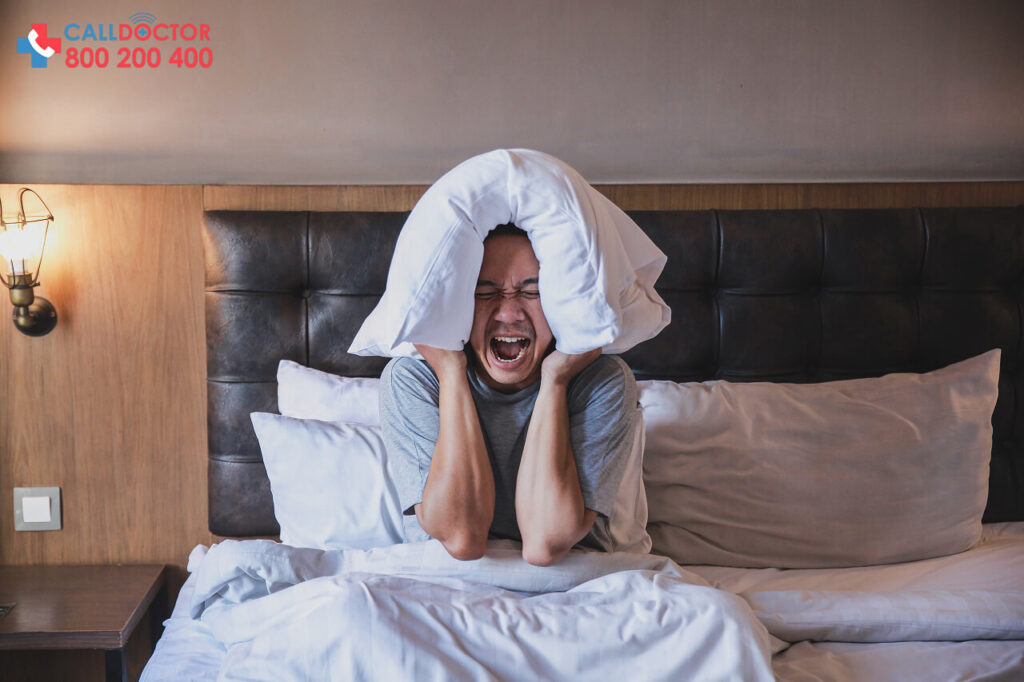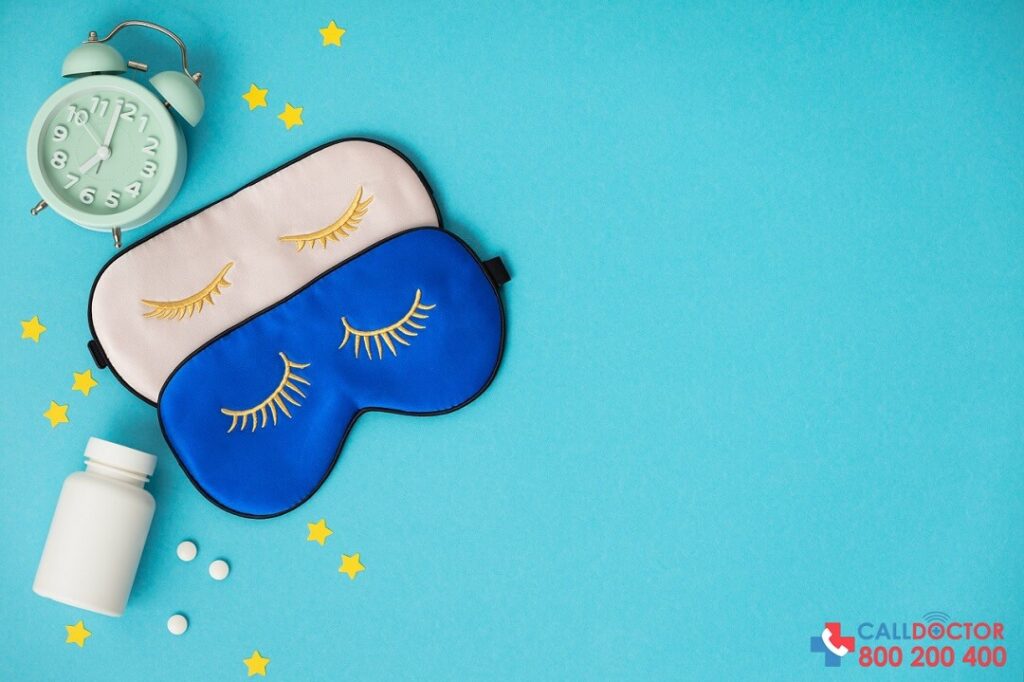After even a night of little to no sleep, nearly everyone has felt like a zombie. People can feel sleepy throughout the day with delayed thinking, diminished energy, and an agitated attitude even after only 1 night without proper sleep.
Because our thoughts and feelings are directly impacted by lack of sleep, chronic sleep deprivation can increase the long-term risk of physical and mental health issues, albeit the short-term effects are more prominent.
Impact of sleep Deprivation
An insufficient amount or level of sleep, including deliberate or spontaneous insomnia and circadian rhythm sleep disorders, is called sleep deprivation. It is crucial to avoid sleep deprivation if you want to prevent these issues. Knowing this condition’s causes, symptoms, diagnosis, and course of therapy can help ensure you receive the rest you require.
The human body needs sleep just as much as it needs food and drink, yet many people do not get enough of it. Our ability to operate during the day is affected by lack of sleep, poor sleep quality, and interruptions to the sleep-wake cycle (such as those brought on by shift work or traveling to a different time zone). These factors contribute to daytime drowsiness and weariness.
The scientific world is beginning to acknowledge that sleep, the most passive activity, has a role in the obesity epidemic. Time is a valuable resource in a society that prizes production. Therefore, it is common for people to cut down their sleep time to get everything done or unwind before bed.
Causes of sleep Deprivation
It is becoming increasingly typical for people to link being “hardworking” while having a sleep. However, many people disregard the harmful effects that this kind of activity has on their health. There are some reasons people cannot get enough sleep:
- Depression
- Headaches
- Stress of work
- Increased blood pressure
- Increased stress hormone level
- Increased level of diabetes

Sleep Deprivation Symptoms
Insufficient sleep’s most common adverse effects are daytime tiredness and compromised cognitive abilities. Moreover, lack of sleep can impact your entire day because it may make it harder for you to focus and leave you feeling exhausted. In addition, it is also one of the critical causes of our daytime yawning. Other signs of sleep deprivation may also include:
- Irritability/anger
- Drowsiness and Dark eye circles
- Drifting out of your lane while driving
- Head nodding and Inability to keep your eyes open
- Irritability and lack of energy
- Yawning and Inability to concentrate
- Heightened stress and Hunger pangs
- Sluggish response time
- Visual misunderstandings
- Sleepiness during daytime hours
- Trouble concentrating
- Waking up not feeling refreshed
- Hallucinations
Stages of Sleep deprivation
First Stage:
24 Hours of No Sleep
While it is doubtful that staying up all night would result in any severe symptoms, you will probably feel exhausted and encounter some side effects. Though the symptoms could be bearable, sleep loss can make it challenging to do daily chores. Furthermore, driving, and other tasks that require complete concentration can be harmful.
Although everyone has distinct signs of sleep loss, some typical ones you might experience at this point are as follows:
- Moodiness, irritability, and sleepiness
- Inability to concentrate
- Stress-related cravings for food
- Sluggish response time
Second Stage:
36 Hours of No Sleep
According to one study, a 36-hour sleepless period will gradually worsen your problems. Along with fatigue and poor attention, your physical wellness may suffer.
Third stage:
48 hours (about 2 days) without sleep
You may suffer brief bouts of unintended “microsleep” after two days without sleep, in addition to all the previously stated adverse effects. Moreover, it causes a brief period of sleepiness and puts your brain in a state resembling sleep. You might also suffer other signs of sleep deprivation in addition to low settings, like:
- Immunity deteriorates
- Increased uncertainty
- Depersonalization
- Higher irritation
Fourth Stage:
72 Hours of No Sleep
The symptoms, as mentioned above, can worsen after 72 hours (or three days) without sleep. You may also have a solid need to sleep with a deteriorated mood and elevated cholesterol levels. You can also have hallucinations and distorted thinking at this point.
- Obesity
- Decreased immunity
- Decreased growth hormones
- Poor work productivity and quality of life
- Sleeping less than 4 hours a night is associated with a higher risk of premature death

Lack of Sleep and Weight Gain
We occasionally get headaches, nausea, light headedness, and weariness when we do not get enough sleep. We are unaware of the physical and physiological impacts that lack of sleep can have on us. Weight growth is one of those physiological impacts that can have a material effect on us.
Teenagers’ Sleep and Behavior
According to a study, your teen’s mood and conduct may not be unusually affected by sleep deprivation. Teenagers with behavioral problems and gloomy moods are more prone to sleep trouble. So, it appears that getting a good night’s sleep is essential for maintaining a positive attitude.
Teenagers typically require 8 to 10 hours of sleep every night, and those who do not may find it difficult to concentrate in class. They might struggle to focus, as a result, exhibit behavioral issues, and even do poorly in exams.
Coping with Sleep Deprivation
- Employing techniques to assist you in relaxing, such as progressive muscle relaxation, guided visualization, deep breathing, or guided meditation.
- Leaving aside a “worry time” will help you deal with your issues at a predetermined time each day rather than at night.
- Placing a notebook next to your bed will allow you to jot down problems and concerns as you think of them, preventing your mind from racing through them while you try to sleep.
- Stress relief and biofeedback therapy, which monitors your brain’s rhythms or muscle tension with sensors put on your skin
- Drink one glass of warm milk at night
- Therapy for controlling stimuli
- Take a power nap or sleep a few extra hours each night
- Go to bed a bit earlier
- Improve your bedroom environment
- Avoid caffeine at night and consult your doctor if you have sleep deprivation symptoms

Get professional help in Dubai.
Many things can cause sleep deprivation, including medical problems, mental health issues, and poor sleep hygiene. Moreover, lack of sleep can adversely impact your mental and physical health and, in severe cases, even cause death. Although short-term lack of sleep can happen suddenly, it is uncertain whether you can make up for rest. Talk to Call Doctor‘s healthcare practitioner if you have trouble getting enough sleep.
Disclaimer:
This blog is for informational purposes and should not be taken as medical advice.




